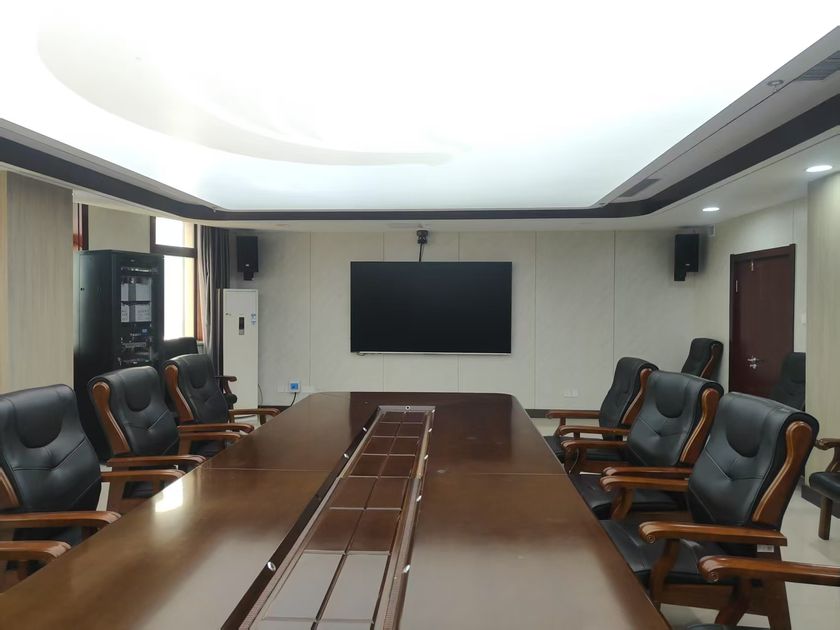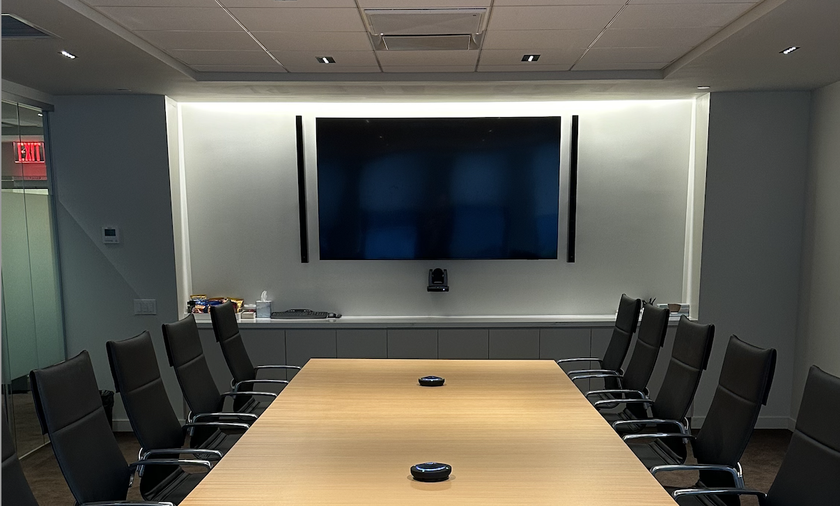by Carolyn Heinze
They say partnerships are like marriages—while things may be rosy in the beginning, they can go south if you don’t nurture them when the honeymoon is over. But when we’re talking business, how personal should a partnership get?
“You have to like who you are partnering with,” said Andrew M. Musci, president and CEO at Altel Systems. “You have to feel that this is somebody that you can work with, that this is a team that you can work with, and beyond that, that it’s a company you can work with.” It has a lot, he said, to do with the personalities involved.
Altel and Sport View Technologies are both well established in the systems integration industry. The former, based in Brewster, NY, offers turnkey audiovisual solutions, but its forté is audio. The latter—located in Brighton, MI—also provides turnkey AV systems. Its overlying strength, however, is video. In 2004, the companies formed a partnership that allows each firm the flexibility of working on their own individual projects, while collaborating, together, on others.
“Because of my company’s history of being very deeply rooted in audio, and Sport View having deeper roots in video—even though both of our companies independently do audiovisual systems for a variety of clients—we decided that in the markets that we were going to go after together, that Altel would furnish the audio and Sport View would furnish the video,” Musci explained. “We would focus and build on each of our strengths in each of those areas, and offer a very solid package for our clients.” Since 2004, the partnership, led by Musci and Sport View president Josh Shanahan, has resulted in over $25 million worth of business, primarily in the gaming market.
But designing and integrating audiovisual technology isn’t the only common ground Altel and Sport View share. Both companies are multi-generational, family-operated enterprises. Both have fostered similar cultures. “The nature of our businesses being family-owned—mine is second generation, his is third generation—was a good, common link that helped us,” Musci acknowledged. “We had similar feelings about how things are done, and how to work with our employees.” For both business leaders, this served as a solid foundation upon which to build on each company’s strengths.
“We wanted to make certain that our business philosophies and corporate cultures aligned,” Shanahan said. After all, when things are running smoothly, it’s easy to get along with pretty much anyone. “It’s when times get tough, or additional pressures are coming from the client, that you can break down. Those core values and cultures had better align, or else you are going to have some pushing and shoving.”
Shanahan admits that forming a partnership with Musci—and, thus, Altel—also fulfilled what he terms a “selfish” agenda: “One of the bigger things, and selfishly so, that intrigued me and gave me the incentive to stay close with Andy is that he is very well known in the industry, he’s the immediate past president of the National Systems Contractors Association (NSCA), and he has been a phenomenal mentor for me,” he said. Through this relationship and Musci’s guidance, Shanahan feels he has grown his skills as a businessman. “He has helped me through the decision-making process when there are more complex issues at hand.”
Personalities, commonalities, and complementing skills sets aside, it’s also paramount that partners agree on their goals and vision for their union. “You can’t have one partner that says, ‘I want to build a $100 million company,’ and another partner that says, ‘I’m happy with a $10 million company,’” Musci illustrated. “You have to have common goals and strategies, and then you have to implement them together.” There must also be trust: “The trust comes from succeeding together, and also being committed to the strategic goals that you’ve established, and to doing what you’re expected to do while your partner does what they are expected to do.”
At the core of this is communication: “This stems from Andy and I, as the leaders of the groups, making sure that our people are communicating, and that we’re all on the same page, that we all understand that we’re on a level playing field,” Shanahan said. “We are doing this not only for the betterment of the organizations, but to make a high-level impact on the client base that we serve.” He noted that from the inception to the completion of a project, he and Musci are in constant communication. “There is never a surprise.”
Jeanne A. Stiernberg, principal at the Sherman Oaks, CA-based Stiernberg Consulting—itself a partnership—believes that focusing on maintaining good communication can never be emphasized enough. “This is essential, because just when you think you’ve told the person everything they need to know, you need to go back and tell them some more,” she said. “There is no such thing as too much when it comes to communication, and the partners really have to be kept informed of what the other is doing.” The business is moving forward as a unit, she added, and for the partners, even though there is diversity and division of labor, there needs to be communication about what’s going on with that business, as a unit.
So where do partnerships fall down? As is the case with marriages, oftentimes this arises from financial problems or lack of communication. Or, as Stiernberg points out, partners may get too caught up in the routine. “They focus too much on operations, on habit, on routine—on the small stuff,” she said. “They don’t keep enough focus on the big picture, which is ever-changing.” Both partners must regularly communicate about, and work toward, day-to-day business, and their more far-reaching goals as well.
For Musci, it’s what partners have in common that enable them to form a strong team. “They say that opposites attract, but I don’t know if that is necessarily true,” he reflected. There is something to be said, he added, about having a strong bond, a common background, and a similar culture. “It lends itself to the making of a better relationship, and a better partnership.”
For his part, Shanahan puts it this way: “Although rule number one in business is not to do business with your friends, I would certainly consider it when entering a business-to-business partnership,” he said. True friends are able to speak with one another candidly, he underlined, and they have a true investment in one another’s life and business. “If you are able to develop a true business friendship like Andy and I have, I think you would be far more successful than if it’s just a business-to-business transaction, where there is no passion behind the pursuit or the vision.”
Is it Possible You’re…Wrong?
At the outset of a partnership, it’s easy to forget that sometimes, partners will disagree. So what do you do about it?
For Jeanne A. Stiernberg, principal at Stiernberg Consulting in Sherman Oaks, CA, it’s a good idea to agree to disagree… or at least develop a system for handling disagreements. “One mistake that partners make is not having a mechanism for conflict resolution,” she said. “There is going to be conflict—you want conflict. You want diversity of opinion, and you want checks and balances.”
Conflict is not a bad thing, unless it becomes emotionally charged. And sometimes partners must admit that they may be mistaken about the issue at hand. “They have to be willing to communicate, and they have to be willing to be wrong about things.”









